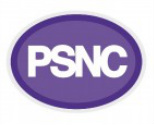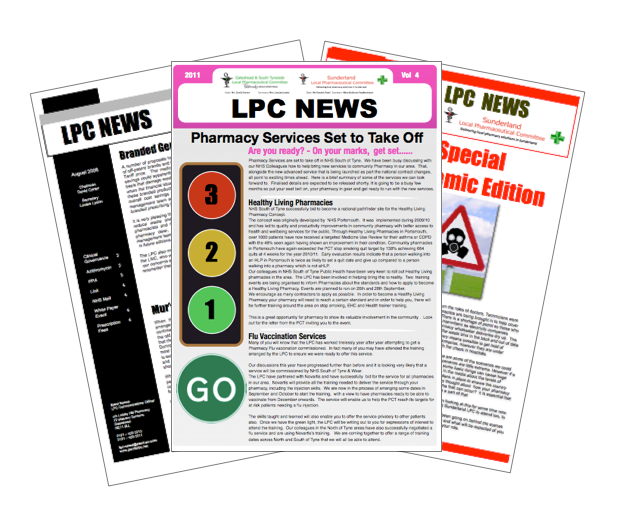
The New Medicine Service (NMS) will be continued, with funding for it to come from the overall settlement; and there are some changes to targeted MURs with the introduction of a new target group and a move for contractors to provide 70% of their MURs to patients within the target groups. Contractors will also be required to include pharmacy names in reports of patient safety incidents; to give patients appropriate advice about the benefits of the Repeat Dispensing service; and to take part in a national audit on the emergency supply of medicines by pharmacies next year (in place of an area team specified clinical audit).
The £2.8bn funding will comprise £2bn to be delivered in fees and allowances, with the remaining £800m to be delivered through agreed purchase margins.
To date pharmacies have been able to retain purchase margin earned above the agreed £500m each year, and this provided, almost every year, substantial additional income. Since the National Audit Office investigation reported in 2010, there has been a drive to account fully for all margin income and to deliver a known and set amount of funding to pharmacy.
In order to deliver the allowed purchase margins, Category M prices will be increased by £10m per month from October. This equates to an increase in average item value of around 12 pence. But from November there will be a reduction in the Practice Payment of around 17 pence per item in order to ensure that the £2bn in fees and allowances is delivered, accommodating volume increases and the inclusion of funding for the New Medicine Service. Using current predictions of prescription volumes this is expected to apply until the end of March 2015. The impact of these adjustments will be to reduce income available to the average contractor by £870 in the second half of 2014/15.
As part of the settlement PSNC has agreed to work with the Department of Health (DH) to reform the systems for managing margin delivery and to make changes to reimbursement.
PSNC was unanimous in accepting the settlement as the best possible outcome for community pharmacy contractors and a sound basis for continuing to develop the community pharmacy service.
To Read a statement from Sue Sharp (PSNC Chief Executive) See Below
For further information please CLICK HERE to visit the the PSNC Briefings page and see Briefings 015/14 to 019/14.
These Briefings have been written to help contractors to understand the settlement and the changes to Advanced Services and the Contractual Framework. These cover changes pharmacies will need to make and provide background material that may be of interest.
PSNC and NHS Employers have issued have produced a summary of the changes to Advanced Services and the Contractual Framework and this can be download by clicking here
It is important now that community pharmacy contractors familiarise themselves with the new settlement details and in particular with changes that have been agreed to the CPCF and to Advanced Services.
The implementation dates for the changes will be announced as soon as they have been agreed and psnc will provide further guidance in due course.
For over a year we have been warning contractors to expect a tough settlement, one that represented more work for the same levels of funding. In common with the rest of the NHS pharmacies have been required to find savings, and this settlement reflects that policy.
We have agreed an overall funding package for 2014-15 of £2.8bn. Of this £2bn will be paid through fees and allowances, as before. The Drug Tariff will be set to deliver £800m of retained margin, and we will work with the Department of Health and the NHS to ensure, so far as is possible, that this is the sum delivered in year, minimising the need for subsequent adjustments.
This is an important change in funding mechanisms, and the end to the system that allowed pharmacies to earn and retain additional purchase margins each year. That extra purchase margin reflected the massive success pharmacies have had in driving down medicines prices for the NHS, and provided funding, drawn not from NHS funds but from reduced prices, of varying amounts, but in the region of £235m.
As part of the agreement PSNC has committed to future changes to the funding mechanisms that will account for all margin within the annual sum. The settlement figure of £2.8bn therefore recognises the additional margin that contractors have earned and retained in previous years, accounting for the apparent increase.
To implement this agreement we expect to make more frequent changes to medicines prices, as well as addressing some other problems with how purchase margin is delivered, aiming to equalise opportunity to earn margin income and make the system as fair as possible to all contractors. These changes are being worked on and will take some months to finalise and implement, but PSNC has committed to collaborate to make them happen.
In a time of significant and prolonged financial austerity, with long term severe pressures on NHS finances, this funding settlement is welcome, and the contractor members of PSNC were unanimous in agreeing it. But, in line with the demands on all parts of the NHS to make efficiency contributions, community pharmacy will also be expected to provide more services in return for the agreement.
We are very pleased that, following the positive outcome of the DH commissioned evaluation of the New Medicine Service, this will continue as an Advanced Service. This reflects our policy to build value around the core supply service and highlights once again the importance of pharmacy’s medicines optimisation role within the NHS.
Pharmacies will be required to identify suitable patients for Repeat Dispensing, the aim being to help GPs identify where they can manage workload pressures from issuing regular prescriptions. It can also have benefits for pharmacies in terms of increasing predictability and promoting loyalty
Other changes include a nationally determined audit to replace the former area team-specified audit, and a commitment to increase patient safety incident reporting, so pharmacies can contribute positively to the safety culture by sharing and learning from incidents.
The rise in the proportion of targeted MURs to 70%, with the addition of cardiovascular risk as a new target group, reflects the benefit of the service for specific patient groups, whilst still ensuring that pharmacists can identify other patients with particular needs for whom an MUR can be helpful.
Although NHS England is still developing its future strategy, there are strong signs that it increasingly sees the potential of community pharmacy to increase its service offering and add capacity to strained NHS resources and this is welcome.
The settlement is for one year only and in the coming months we hope to develop the framework for 2015-16 and beyond, building on this year to increase further the service framework across our four domains: medicines optimisation; supporting self-care; supporting frail and elderly people and promoting health and wellbeing. Medicines supply will continue to be the core of the service, building on which the community pharmacy will become an increasingly important source of help and support for patients and for the rest of the NHS team.
PSNC is very keen to reach a settlement for 2015/16 before April 2015, as well as to increase stability of income flows. This will help contractors, and we continue to try to tackle other problems that adversely affect pharmacy operations. Undoubtedly, like the rest of the NHS, pharmacy contractors will continue to be squeezed, and we need to develop the services we provide for patients in order to secure future income growth.
 RSS Feed
RSS Feed
